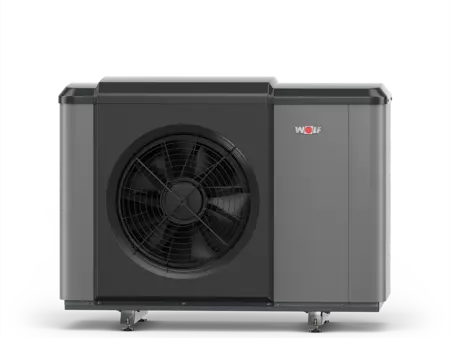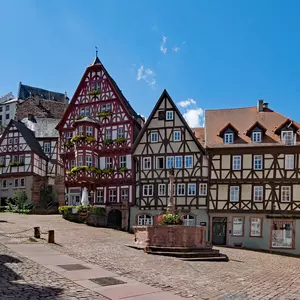
Modernising heating systems
In light of imminent climate change, it is essential that we reduce our CO2 emissions. In Germany, private households produce 10% of all CO2 emissions. So this is an area in which we could reduce our output of greenhouse gases by a substantial amount.
When should you modernise your heating system voluntarily?
Even if you are not legally obliged to modernise your heating, it can be worth your while to consider upgrading your system.
Subsidies are available from several bodies in the form of grants and low-interest loans. This can significantly reduce the cost of the upgrade.
Heating systems that are older than 15 years are considered to be technically obsolete. Modern systems are much cheaper to run and so pay for themselves within a few years.
But it is not always necessary to replace the entire heating system. Even simple measures, such as hydronic balancing or installing modern thermostat heating valves can often make a difference. Furthermore, subsidies are also available for these measures.
And after all, modernising your heating and reducing your CO2 footprint is good for the environment, not to mention that modern heating systems are much more convenient than old equipment.
What technologies are available?
Modernising heating systems using oil condensing technology
Heating systems of this kind can be fitted in just about any building as they do not require a gas connection, no excavation work is needed and no additional load is placed on the roof.
However, an oil tank takes up a lot of room and a smell of oil can emanate from the storage room.
Warning: neither BAFA nor the KfW provide subsidies for installing oil heating systems.
Modernising heating systems using gas condensing technology
A gas condensing boiler is more environmentally friendly than oil heating and takes up less space.
However, bear in mind that it requires a gas connection.
Solar thermal technology
The key element in solar thermal technology systems are solar collectors that are filled with a liquid. This liquid is heated by solar radiation.
It transmits this heat to the heating water in a heat exchanger. In doing so, it cools and is returned to the collectors where the cycle begins again.
In winter, solar thermal technology mostly does not produce sufficient heat to run a heating system so it is often used as an element of hybrid heating systems.
Heat pumps
There are several types of heat pump:
- Air-to-water heat pump: draws heat from the surrounding air
- Water-to-water heat pump: draws heat from groundwater
- Brine-to-water heat pump: uses geothermal heat for heating
All heat pumps work on the same principle. This video shows how they operate in detail. However, bear in mind that not every type of heat pump can be installed in any situation. Some of them require extensive excavation work.
Air-to-water heat pump
CHA-MONOBLOCK
The WOLF CHA Monoblock heat pump is sure to fit in with the overall design of your home, and is perfect in the garden, out on the patio or mounted on the wall – all with an impressive COP of 4.65.

Hybrid heating systems
These are the combination of two or more heating systems. Popular combinations include a gas condensing boiler plus solar thermal technology or a gas condensing boiler plus a heat pump.
Which heating system is the best?
There is no universal answer to this question. It always depends on your specific situation. In addition to your personal preferences, the spacial, technical and legal requirements must also be examined. The best way to go about this is to have an expert visit your home.


